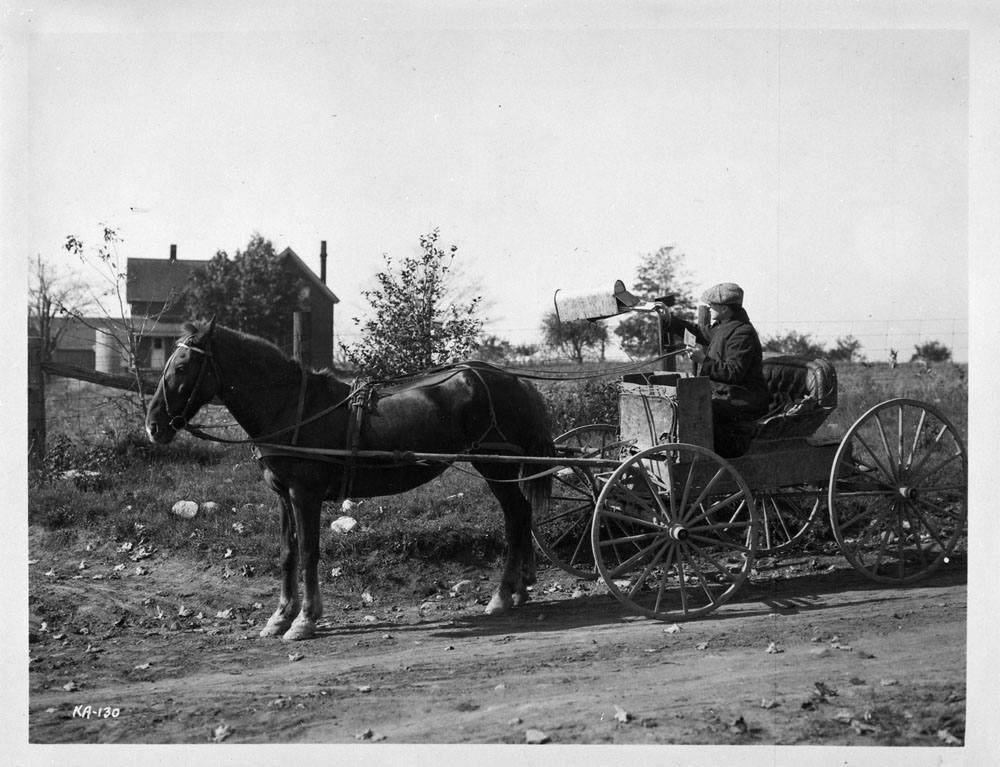The Canada Post Corporation (Canada Post or CPC), is a Crown corporation that reports to Parliament through the Minister of Public Services and Procurement. Under the Canada Post Corporation Act (1985), the CPC has a broad mandate to operate a postal service for the transmission of messages, information, funds and goods and to provide other related services. The provision to provide postal services to all Canadians, including residents and businesses in rural and urban areas is central to this mandate. (See also Postal System.) Through the Canada Post Group of Companies, the CPC owns the subsidiary, Purolator Holdings Ltd., a courier company. The operations of the CPC are funded by revenue generated from the sale of the CPC’s postal products and services. In 2024, the CPC reported a loss of $841 million before tax.

Background
The CPC was created as a Crown corporation on 16 October 1981. It is the successor to the Post Office Department. Its incorporation reflected a consensus, which had evolved over almost 20 years and was accepted by three successive federal governments, about the need for a new direction for the provision of postal services in Canada. Users had vigorously complained about the service and reliability of the Post Office Department, particularly after a series of strikes in the 1960s and 1970s. Postal unions argued that their collective bargaining rights were limited as long as they were government employees and required to negotiate with government agencies and departments rather than postal management. The government itself was concerned about the lack of financial and managerial accountability and the resulting growth in the operating deficit of the Post Office Department, which in 1980-81 was about $500 million. (See also CUPW Postal Strike.)
Outside of its letter service, the CPC competes directly with other suppliers and has the same flexibility enjoyed by private-sector enterprises to move in and out of markets and services. These "competitive" activities of the CPC reflect the history of postal services in Canada and elsewhere. For example, Canadian postal administrations have been providing parcel services since 1859, mechanical devices to assist with mail processing were introduced in 1896, and free rural mail delivery service was introduced in 1908. (See also Postal System.).

Canada Post Group of Companies
Under the Canada Post Group of Companies, the CPC owns the subsidiary, Purolator Holdings Ltd., a courier company. Prior to the first half of 2024, the Canada Post Group of Companies included the subsidiaries; SCI Group Inc., a third-party logistics provider and Innovapost, a shared-services provider in information technology. The Canada Post Group of Companies divested of SCI on 1 March 2024 and Innovapost on 15 April 2024.
Operations
Canada Post Worker
A Canada Post worker enters the postal code for packages at the Gateway facility in Mississauga, ON, 28 September 2011.
(photo by Steve Russell/Toronto Star via Getty Images)
In 2024, the CPC and the Canada Post Group of Companies collected, processed and delivered 6.6 billion pieces of mail and parcels. In doing so, they provided service to 17.6 million residential and business addresses across Canada. The CPC and the Canada Post Group of Companies also provided international inbound and outbound services to 192 countries. Together with its affiliated companies, the Canada Post Group of Companies employed 76,000 full-time and part-time employees in 2024. Of this number, the CPC employed more than 62,300 full and part-time employees, making it one of the largest employers in Canada. The CPC operates Canada’s largest retail network, by providing customers with service at approximately 5,700 retail post offices. Some of these locations are operated by private businesses.
Did you know?
During the COVID-19 pandemic more Canadians began shopping online. On 21 December 2020, the CPC delivered 2.4 million parcels, setting a new record-high for the company.
In 2024, the CPC reported a loss of $841 million (before tax), compared to a loss of $748 million (before tax) in 2023. The CPC’s 2024 Annual Report estimated that the national strike by the Canadian Union of Postal Workers (CUPW) in the fourth quarter of 2024 may have impacted operations as well as mail and parcel revenues and volumes. (See also CUPW Postal Strikes.) The CPC also reported that letter mail volumes have steadily declined since 2006, when the CPC delivered a record 5.5 billion letters to Canadians at 14.3 million addresses. The growth of digital communication methods paired with mobile communication have been cited by the CPC as factors contributing to the decline of letter mail. In 2024, the CPC also reported that revenue for parcels declined by $683 million, or 20.3 per cent, compared to 2023. The higher cost of processing and delivering parcels and increased competition with private operators are argued to be contributing causes to the CPC’s low margins.

 Share on Facebook
Share on Facebook Share on X
Share on X Share by Email
Share by Email Share on Google Classroom
Share on Google Classroom






